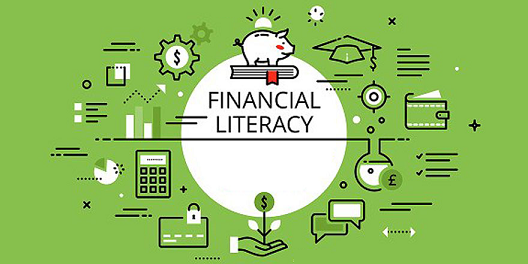Welcome to Capital Group
Private Lending For Real Estate Investors: What To Know?
Primary Benefit of Direct Private Lending
Some real estate developers and investors use private lending institutions to finance investments. Buying an investment or rental property, is very different from acquiring your primary residence home. A traditional mortgage application can take a lot longer than it should be, and we understand investors have to act fast when they find a good deal. At Capital Group Private Investor Mortgage Funding, the approval process is streamlined for our private lending and is comparatively fast as a direct private lender not affiliated with major banking traditional lending institutions and we can close in as little as 7 business days as a rush transaction

Private Money Loans
How to Get Access to Private Money Lending Capital?
- Real Estate Investing
- Real Estate Investors
- Real Estate Developers
Business Capital
Small Business Loans
- Equipment Financing
- Working Capital Loans
- Merchant Financing
- Small Business Loans
- SBA Loans
Serving Real Estate Investors & Business Owners
Business Industries
Countries

Private Lending Lending
Private Real Estate Loans

Get Started
Find The Private Money For Real Estate & Business
Rehab Fix & Flip Loans
Fix and Flip loans are short-term, small-business loans that real estate investors utilize to purchase and renovate investment properties for resale that we like to call After Repair Value (ARV) which is a force appreciation strategy.
Bridge Loans & Term Loans
Bridge Loans are short-term financing investment loans which are used until the investor secures permanent financing and it’s mostly used for immediate cash flow to acquire the real estate assets. Some investors exit strategy is to sell.
Ground-UP Construction Loans
Ground-Up construction loans typically have project costs and need cash reserves. Development experience is required. We offer programs for a single home or an entire development.
Business Financing
We offer Business Loans with a variety of business financing programs that will get you the funding for your business. We offer over loans from $5,000 – $100 Million.
Private Money Lender Near Me
Fix And Flip Loans
Multifamily Financing
- Loan Term: 12 to 24 Months
- Loan Types: Interest Only | Fixed | Adjustable Rate Mortgages
- Experience: Prior multifamily property ownership experience required
- Loan Amount: $500k – $5MM
- Loan Purpose: Capital Group Multifamily bridge loans for purchases or refinancing of small and middle-market investment properties (5+ multifamily units) that are stabilized or in need of renovation/value added.
- Property Type: 5+ Unit Multifamily with a minimum $35,000 per door. Acceptable properties are Class A, B and C grade. Class D properties may be considered on a case-by-case basis.
- Maximum Leverage | Loan-To-Coast (LTC) | Loan-To Value (LTV) | Cost is Purchase Price Amount: Up to 75% of purchase price and 100% of renovation costs subject to 80% total (LTC) | 70% of stabilized value (LTV) and Cash-Out Refinance up to 65%.
- Borrower Recourse: Recourse and Non-Recourse. Non-Recourse option will have standard carve-outs; availability will be determined on a case-by-case basis.
- Loans ≤ $2MM: Full Recourse
- Loans > $2MM: Full Recourse or
- Limited Recourse with bad-boy carveouts
- Completion Guaranty/Reserve Replenishment Guaranty when applicable
- Foreign Nationals: Capital Group allows foreign nationals with established US credit subject to 55% stabilized LTV maximum.

Fix And Flip Single Family Financing
Capital Group offers Fix and Flip loans in 47 states and the District of Columbia. Close in as little as 7 Days with our Rush Program. We also offer discount for repeat business clients for appraisals and more.
Fix and Flip Loans:
-
Loan Term: 12 Months Standard | 18 Month Option Case by Case.
-
Construction Financing/Rehab: Funding up to 100% rehab budget up to percent approved LTV of Total Costs.
-
Maximum Loan-To-Cost (LTC) Cost Is Purchase Price Amount: Up to 90% Loan-To-Cost (LTC)
-
Maximum Loan-To Value (LTV): Up to 70% After Repair Value (ARV) LTV
-
When Do We Use LVT vs LTC? We generally use the lesser of the LTV or LTC calculation.
-
Recourse: Full Recourse Only
-
Loan Amount: $50K – $5MM
-
Loan Purpose: Rehab loan for non-owner occupied residential investment properties only.
-
Borrower Type: Entity required.
-
Property Types: Non-Owner Occupied, Attached or Detached SFR, 2-4 Unit Properties, Townhomes and Condos.
-
Foreign Nationals: Not allowed from ineligible country list.
-
Minimum Experience: NO prior experience required!
-
No Prepayment Penalties
-
We Will Need the Scope of Work and Entity Documents.

Real Estate Loan Types
Ground Up Construction Financing
Capital Group Private Investor Mortgage Funding Ground Up loans provide you with a reliable funding source for your customers to build new 1-4 single family houses..
-
Maximum Loan To Cost: Loans Up to 75% of the lower of land value or purchase price or 60% if unpermitted, plus 100% of construction. Maximum 85% of total project costs. Loan To Cost Catch Up Draw to raise initial advance to 75% at approval of required plans/permits post-closing.
-
Maximum Loan To ARV: Up to 70%
-
Recourse: Full Recourse
-
Reserves/Escrows: Interest Reserve is a minimum of one month.
-
Experience: Previous real estate experience required from 1 – 2 for ground ups. General Contractors (GCS) if experience if permits tie to Ground ups Guarantors with no experience permitted on a case by case basis.
-
Loan Amount: Minimum $50,000 – Maximum $5,000,000.
-
Term Length: 12 Months, Up to 18 at Lender Discretion.
-
Property Count: Minimum 1 and Maximum 2. If 3+ Similar Past Projects the you’re considered for our Experienced Developer Program which has better and different terms with many more property types allowed.
-
Permitted Property Types: Non-Owner Occupied 1-4 unit residential, Townhomes, Condos.
-
Experienced Developers: Can do many more types of properties.

Equipment Financing Loans
Equipment financing is a type of loan that enables small businesses to purchase the equipment and machinery needed to conduct business and grow their company.
Accounts Receivable Financing
Accounts receivable financing is a type of financing arrangement which is based on a company receiving financing capital in return for a chosen portion of its accounts receivable.
Factoring Financing
Factoring functions similarly to a credit card where the bank or lender (factor) is buying the debt of the customer without recourse to the seller. It is used to get cash quickly.
Merchant Financing
A merchant cash advance is a type of loan financing for small businesses that need capital immediately to cover cash-flow shortages.
Business Line of Credit
A business line of credit is a revolving form of small business funding that operates similar to a credit card that only charges interest on the amount you use of the line of credit.
SBA Loans
SBA loans are guaranteed by the Small Business Administration (SBA) and range from small to large loans which can be used for most business purposes.

Leadership Team Since 1991
Years in Business
Clients
$ Loans
We provide commercial loans for business owners and commercial real estate loans with our private capital. We also have access to 3,000 plus lenders who compete for your business, which allows us to offer you low competitive rates and save time in raising the capital needed for your venture. Our clients are offered loans for Commercial Real Estate Loans, Asset Based Loans, Working Capital Loans, Equipment Lease Loans, Factoring, Trade Financing, Hard Money Loans, Merchant Financing, Small Business Administration Loans (SBA), Structured Financing, Unsecured Lines of Credit.
Understanding the Dynamics of Private Money Lending: A Comprehensive Guide
In the complex landscape of real estate investing, individuals often seek alternative financing solutions to fund their projects, and private money lending has emerged as a viable option. Private money loans, offered by private money lenders, have become a crucial resource for many real estate investors looking to secure funding outside traditional financial institutions. This article delves deep into the intricate workings of private money lending, exploring its nuances, benefits, and potential pitfalls.
The Role of Private Money Lenders
Private money lenders play a pivotal role in the real estate investing business. These entities, often individuals or private lending companies, offer private money loans to borrowers for various purposes, such as purchasing investment properties, funding construction projects, or supporting real estate development ventures.
Navigating Private Money Lenders Near Me: A Comprehensive Guide
In the ever-evolving landscape of real estate investing, the quest for efficient financing solutions often leads investors to explore the realm of private money lenders. This article delves into the intricacies of private money lending, focusing on the specific needs of real estate investors searching for “Private Money Lender Near Me.” We will explore the nuances of hard money loans, the role of private money lenders, and the diverse financing options available to residential real estate investors.
The Crucial Role of Private Money Lenders
Private money lenders serve as vital resources for real estate investors, offering alternatives to traditional financing avenues. Specifically, when searching for a “Private Money Lender Near Me,” investors often seek local lenders who can provide personalized and timely solutions for their investment projects.
Hard Money Loans: Bridging the Financial Gap
Hard money loans are instrumental for real estate investors, especially those engaged in time-sensitive projects. These loans, offered by private money lenders, differ from traditional financing by emphasizing the value of the subject property as collateral rather than the borrower’s credit history.
Private Money Lender’s Focus
Private money lenders play a crucial role in the hard money lending process, focusing on the investment property’s potential rather than traditional lending criteria. This approach makes hard money loans accessible to a broader range of investors.

Market trends significantly influence the landscape of private money lending. Factors such as interest rate fluctuations, regulatory changes, housing market conditions, and overall economic health play pivotal roles in shaping the strategies and decisions of both lenders and borrowers in the private money lending sphere.
XXX. The Future of Private Money Lending
The future of private money lending next real estate investment also appears promising, given its adaptability and responsiveness to market needs. As technology continues to evolve, further innovations in lending platforms and processes are anticipated, offering more efficient and accessible avenues for real estate investors to secure funding. However, staying abreast of regulatory changes and maintaining ethical standards will be essential for the sustainable growth of private money lending in the real estate investment landscape.

The Profound Benefits of Securing Real Estate Loans from Private Lenders
Introduction
In the realm of real estate financing, opting for loans from private lenders has become an increasingly popular choice among investors and property buyers. These private lenders, distinct from traditional financial institutions, offer various advantages that cater to the unique needs of borrowers seeking capital for real estate endeavors.
Benefits of Choosing a Private Lender
Private lenders, unlike traditional banks or financial institutions, operate with a different set of regulations and lending criteria, often providing more flexible terms and quicker access to funds. The benefits of securing real estate loans from these private entities are multifaceted and encompass various aspects beneficial to borrowers.
Flexibility in Loan Terms
One of the most appealing aspects of securing loans from private lenders is the flexibility they offer in loan terms. Unlike traditional lenders bound by strict regulations, private lenders can customize loan terms to suit the specific needs of borrowers. This flexibility includes tailoring repayment schedules, interest rates, and even the down payment requirements, making it more feasible for borrowers to manage their financial obligations.
Expeditious Loan Approval and Disbursement
Private lenders often boast a streamlined loan approval process compared to traditional lending institutions. The bureaucracy and lengthy approval procedures associated with banks are minimal with private lenders, enabling borrowers to secure funds promptly. This swift approval and disbursement process prove invaluable in seizing time-sensitive investment opportunities within the real estate market.
Accessibility to Borrowers with Varied Credit Histories
Private lenders are known for being more lenient when assessing borrowers’ credit histories. While traditional lenders prioritize a strong credit history, private lenders place more emphasis on the collateral value, particularly the investment property. This openness to borrowers with less-than-perfect credit histories expands opportunities for individuals or businesses looking to invest in real estate but facing credit challenges.
Tailored Loan Options for Investment Properties
For borrowers seeking loans specifically for investment properties, private lenders offer tailored solutions that align with the unique nature of these transactions. Whether it’s financing for a rental property, non-primary residency, or a bridge loan between real estate transactions, private lenders provide specialized loan options catering to diverse investment needs.
Higher Approval Rates and Collateral-based Lending
Private lenders often base their lending decisions on the collateral’s value rather than solely on the borrower’s financial history. This collateral-based approach translates to higher approval rates for loans, as the primary focus remains on the investment property’s potential value rather than stringent financial background checks.
Mitigated Regulatory Constraints
Compared to traditional lenders who are bound by stringent regulatory frameworks, private lenders have more flexibility in navigating regulatory constraints. This allows them to provide funding options that might not fit within the parameters of traditional lending institutions, opening up avenues for borrowers otherwise excluded from obtaining loans.
Increased Opportunities for Multiple Loans
Private lenders are generally more open to financing multiple properties or projects simultaneously. Unlike traditional lenders that may impose restrictions on the number of loans a borrower can hold concurrently, private lenders often have more relaxed restrictions, enabling investors to expand their portfolios efficiently.
Building Strong Relationships with Multiple Lenders
Engaging with multiple private lenders also fosters better relationships in the lending landscape. Borrowers benefit from establishing connections with various lenders, giving them access to a diverse range of loan options, interest rates, and terms, empowering them to make more informed decisions.
Conclusion
In conclusion, the advantages of obtaining real estate loans from private lenders are substantial and cater to a wide range of borrowers within the real estate market. The flexibility in loan terms, expedited loan approvals, accessibility to varied credit histories, specialized loan options, and increased opportunities for multiple loans showcase the robust benefits that private lenders offer to individuals and businesses seeking financing for real estate ventures. As the real estate market continues to evolve, the role of private lenders remains pivotal in providing tailored financing solutions that meet the unique needs of borrowers.
Helping Real Estate Investors Fund Private Money Loans For Investment Properties
Learn MoreGet Started
Start your new financial journey with Capital Group
Get in touch
Contact US Today
+1 (888) 588-2254
1420 Celebration Blvd, Suite 200, Celebration, FL 34747.








